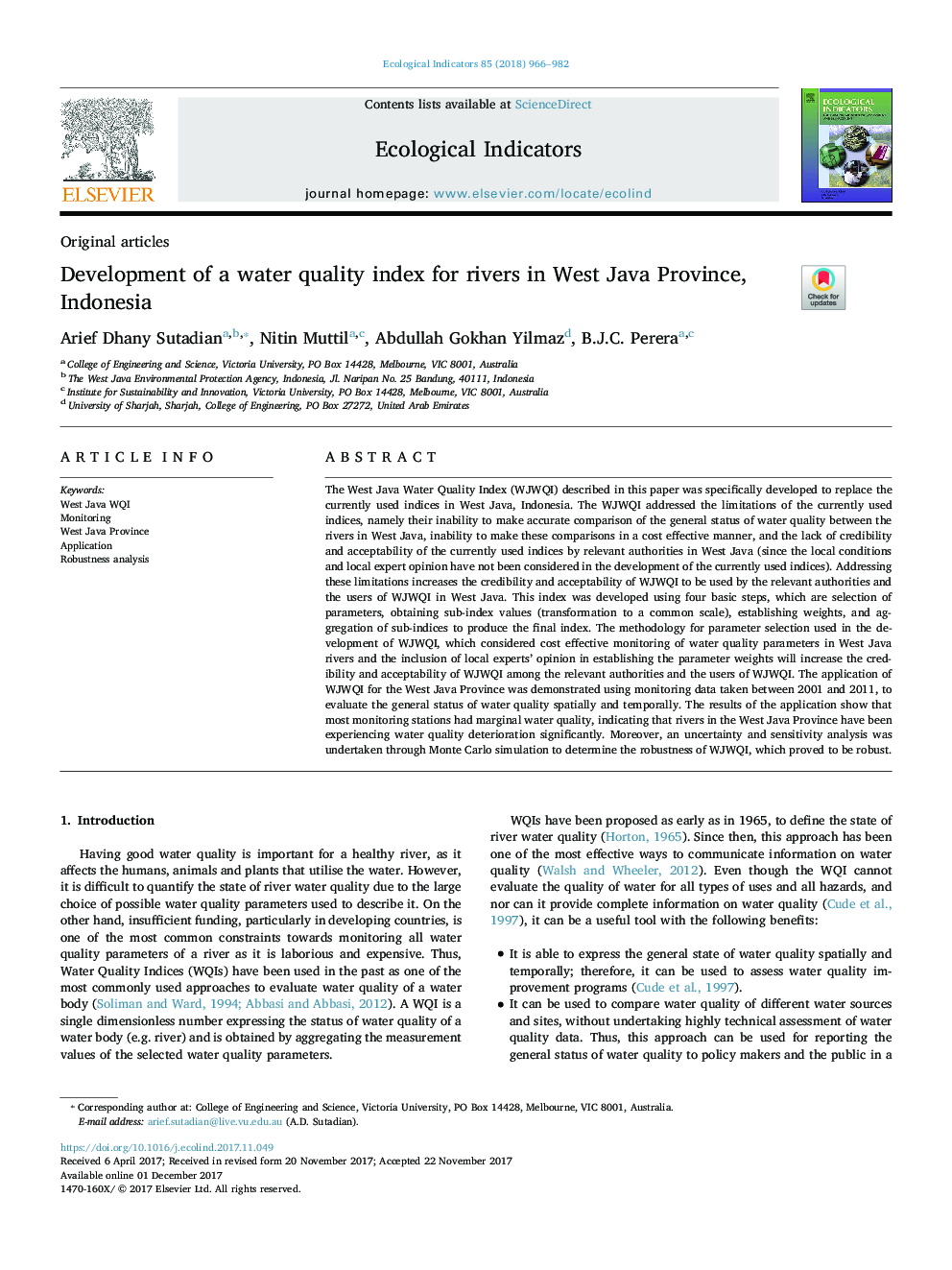| Article ID | Journal | Published Year | Pages | File Type |
|---|---|---|---|---|
| 8845776 | Ecological Indicators | 2018 | 17 Pages |
Abstract
The West Java Water Quality Index (WJWQI) described in this paper was specifically developed to replace the currently used indices in West Java, Indonesia. The WJWQI addressed the limitations of the currently used indices, namely their inability to make accurate comparison of the general status of water quality between the rivers in West Java, inability to make these comparisons in a cost effective manner, and the lack of credibility and acceptability of the currently used indices by relevant authorities in West Java (since the local conditions and local expert opinion have not been considered in the development of the currently used indices). Addressing these limitations increases the credibility and acceptability of WJWQI to be used by the relevant authorities and the users of WJWQI in West Java. This index was developed using four basic steps, which are selection of parameters, obtaining sub-index values (transformation to a common scale), establishing weights, and aggregation of sub-indices to produce the final index. The methodology for parameter selection used in the development of WJWQI, which considered cost effective monitoring of water quality parameters in West Java rivers and the inclusion of local experts' opinion in establishing the parameter weights will increase the credibility and acceptability of WJWQI among the relevant authorities and the users of WJWQI. The application of WJWQI for the West Java Province was demonstrated using monitoring data taken between 2001 and 2011, to evaluate the general status of water quality spatially and temporally. The results of the application show that most monitoring stations had marginal water quality, indicating that rivers in the West Java Province have been experiencing water quality deterioration significantly. Moreover, an uncertainty and sensitivity analysis was undertaken through Monte Carlo simulation to determine the robustness of WJWQI, which proved to be robust.
Related Topics
Life Sciences
Agricultural and Biological Sciences
Ecology, Evolution, Behavior and Systematics
Authors
Arief Dhany Sutadian, Nitin Muttil, Abdullah Gokhan Yilmaz, B.J.C. Perera,
